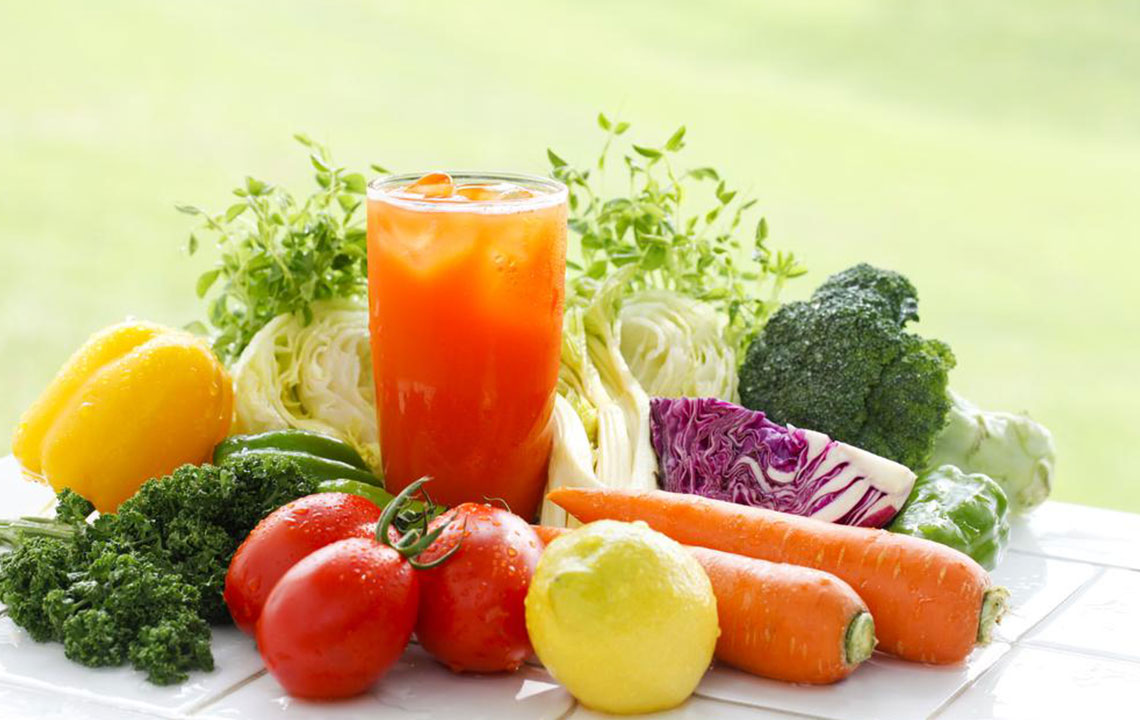Comprehensive Guide to Liquid Diet Strategies for Enhanced Recovery and Overall Wellness
Explore comprehensive liquid diet strategies designed for weight management, detoxing, and health recovery. Learn how to incorporate nutrient-rich liquids, smoothies, broths, and juices safely into your wellness routine with expert tips. This guide emphasizes personalized plans and medical consultation to ensure health benefits while avoiding potential risks. Perfect for those seeking effective short-term dietary shifts to boost health, lose weight, or recover from illness, the article offers practical advice and delicious recipes to support your wellness journey.

Comprehensive Guide to Liquid Diet Strategies for Enhanced Recovery and Overall Wellness
In recent years, liquid diets have gained popularity as effective tools for weight management, detoxification, and recovery from medical procedures or health issues. These diets involve replacing traditional solid foods with carefully selected nutritional liquids, such as smoothies, broths, fruit and vegetable juices, and soups. The primary goal is to ensure that the body receives essential nutrients and calories through beverages, making it easier for the digestive system to rest and recover while still maintaining adequate nutrition. This comprehensive guide explores various liquid diet strategies, their benefits, and how to implement them safely to support your health and wellness journey.
The Role of Liquid Diets in Weight Management
One of the most common reasons people turn to liquid diets is for weight control. By substituting high-calorie, processed foods with lower-calorie, nutrient-dense liquids, individuals can effectively reduce their calorie intake. This approach can promote gradual weight loss, especially when combined with regular physical activity and medical supervision. Most adults require approximately 2000 calories per day for maintenance, but many liquid diets provide significantly fewer calories—sometimes as low as 800 to 1200 calories—creating a calorie deficit that leads to weight reduction.
Implementing a liquid diet for weight management involves careful planning. It’s essential to incorporate a variety of nutrient-rich liquids to prevent deficiencies. For example, smoothies made from low-sugar fruits like berries, melons, and citrus, along with vegetables such as spinach, cucumbers, and celery, can provide fiber, vitamins, and minerals essential for health. Additionally, incorporating soups made from wholesome ingredients can enhance satiety and sustain energy levels. Consulting with healthcare professionals before starting any weight-loss plan ensures that your approach is safe and tailored to your individual health needs.
To support sustainable weight loss, focus on consuming low-sugar fruit juices, nutrient-dense smoothies, broth-based soups, and vegetable drinks. These options can help decrease calorie intake while still providing essential nutrients to your body. Remember, rapid weight loss can sometimes be harmful; therefore, gradual and monitored changes are more beneficial. Medical supervision is highly recommended, especially for individuals with underlying health conditions or those planning long-term dietary changes.
Detoxification with Liquid Diets
Detox diets aim to eliminate toxins from the body and promote overall health. These diets typically involve consuming only natural, minimally processed liquids that support the body's cleansing processes. Incorporating freshly made fruit and vegetable juices, smoothies, and broths can boost your body's ability to detox naturally. For example, blending carrots, kale, beets, celery, spinach, parsley, and cabbage can create a potent detoxifying drink. A splash of lime juice and a touch of garlic can enhance flavor and add beneficial compounds that support liver function.
Detox diets are usually short-term and should be adopted with caution. They are beneficial for jump-starting healthy eating habits but should not replace long-term balanced nutrition. Always drink plenty of water during detox regimens to aid in flushing out toxins and consult healthcare providers for personalized advice, especially if you have existing health conditions or are taking medications.
Managing Gastrointestinal Conditions Through Liquid Diets
Liquid diets also play a crucial role in managing certain gastrointestinal disorders, such as Crohn’s disease, especially during flare-ups. During these periods, the digestive system needs to rest, and easily digestible, nutrient-rich liquids can help maintain nutritional status without exacerbating symptoms. Broth-based soups, non-dairy smoothies, and tender coconut water provide hydration and essential nutrients.
It is advisable to avoid dairy products and added sugars, which may trigger symptoms. Instead, focus on simple, soothing drinks like a Virgin Mary made from fresh tomato juice, lime, Worcestershire sauce, and horseradish—this can serve as a nutritious, palate-pleasing option. Consuming frozen fruits blended into smoothies, herbal teas, and clear broths can deliver vital nutrients with minimal gastrointestinal distress. Always work with healthcare providers to determine appropriate dietary modifications to support recovery and manage symptoms effectively.
In conclusion, liquid diets, when used appropriately and under medical supervision, offer versatile strategies for weight loss, detoxification, and managing health conditions. Careful planning, variety, and balanced nutrition are key to making the most of this dietary approach. Whether for short-term detox, weight management, or medical recovery, a well-designed liquid diet can be a powerful tool for enhancing overall health and wellness.





